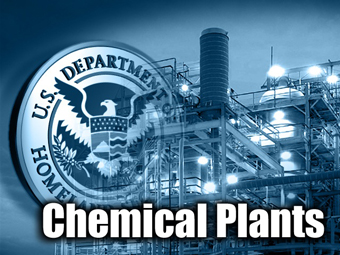
(FinalCall.com) – Many in the environmental injustice community praised the stance of President Barack Obama when he signed an executive order which requires the Environmental Protection Agency, the Dept. of Homeland Security and the Occupational Safety and Health Administration to draft plans to ensure the nation’s chemical plants are made as safe as possible.
Those agencies are supposed to draft recommendations by Oct. 31 for new safety standards to present to the president to prevent tragedies such as the April 17 explosion at a fertilizer plant in West, Texas that killed 15 while leaving 200 injured.
“With his executive order, President Obama is allowing the EPA to take the lead in protecting our communities,” noted Dr. Robert Bullard, dean of the Barbara Jordan-Mickey Leland School of Public Affairs at Texas Southern University in an op-ed published in the Austin American Statesman.
Dr. Bullard, a leading voice against environmental injustice and environmental racism, said since the West, Texas incident, “There have been at least 10 major chemical accidents across the country, some of which have resulted in fatalities and injuries.”
Some activists say no one at any level of government knows definitively how often serious chemical accidents occur each year in the U.S. And they charge there is no plan in place from federal agencies to gather more accurate information.
They say executive orders are fine, but strong federal legislation is also needed. There are too many facilities across the nation that are “disasters waiting to happen,” said Michele Roberts, a Washington, D.C.-based environmental justice activist. “We told the EPA’s National Environmental Justice Advisory Council on Sept. 11 in Atlanta, Ga. that the agency must step up its game,” Ms. Roberts told The Final Call.
The “we” Ms. Roberts refers to is the Environmental Justice and Health Alliance for Chemical Policy Reform, which is a coalition of environmental organizations making presentations across the nation about the need for chemical safety reform. The U.S. system of environmental protection is broken and reform is needed to protect human rights of people who have been subjected to toxic pollution, argued Attorney Monique Harden, co-director of the Washington, D.C.-based Advocates for Environmental Human Rights.
“People of color disproportionately bear the brunt of such toxic pollution, leading to unequal environmental protection and environmental racism,” said Ms. Harden.
There is such legislation pending in Congress and July 31 activists attended a hearing, “Strengthening Public Health Protection by Addressing Toxic Chemical Threats,” on Capitol Hill sponsored by the U.S. Senate’s Environment and Public Works Committee. The committee is chaired by California Democrat Barbara Boxer. Activists who spoke before the committee stressed the importance of changing “Senate Bill-1009: Chemical Safety Improvement Act.”
“The ‘Safe Chemicals Act’ stands as the only piece of legislation introduced in the session mandating the reduction of toxic exposures in community’s such as Mossville,” Dorothy Felix, president of MEAN in Mossville, La., a predominately Black town destroyed by the toxic fumes from 14 chemical plants.
Cecil D. Corbin-Mark, deputy director of Policy Initiatives at the New York-based WEACT for Environmental Justice told The Final Call there needs to be language in S-1009 that deals with “hot spot” communities such as Harlem and the South Bronx.
“EPA must create a list of the ‘hot spots’ across the nation in communities such as those in Texas, Michigan, Delaware and Alaska where people are suffering from chemical contamination every day in their water and the air they breathe,” Mr. Corbin-Mark said.
“A shocking message from our hearing comes from the advocates who charge that S-1009 is far worse than the current law. This means we have a lot of work to do,” said Sen. Boxer in a statement after the hearing.
According to the activists and Sen. Boxer, one of the most compelling issues is to remove from the bill “preemption language” and prohibit states from creating their own legislation related to chemical pollution.
The Final Call contacted the senator’s office and was referred to Environment and Public Works Committee staffers, who did not return phone calls.
“All we are hearing out of Washington is that stronger mandates, stronger regulations, means more money and the ‘sequester’ inhibits new spending,” Ms. Roberts said. Activists fear the bill may die in committee, she said.












